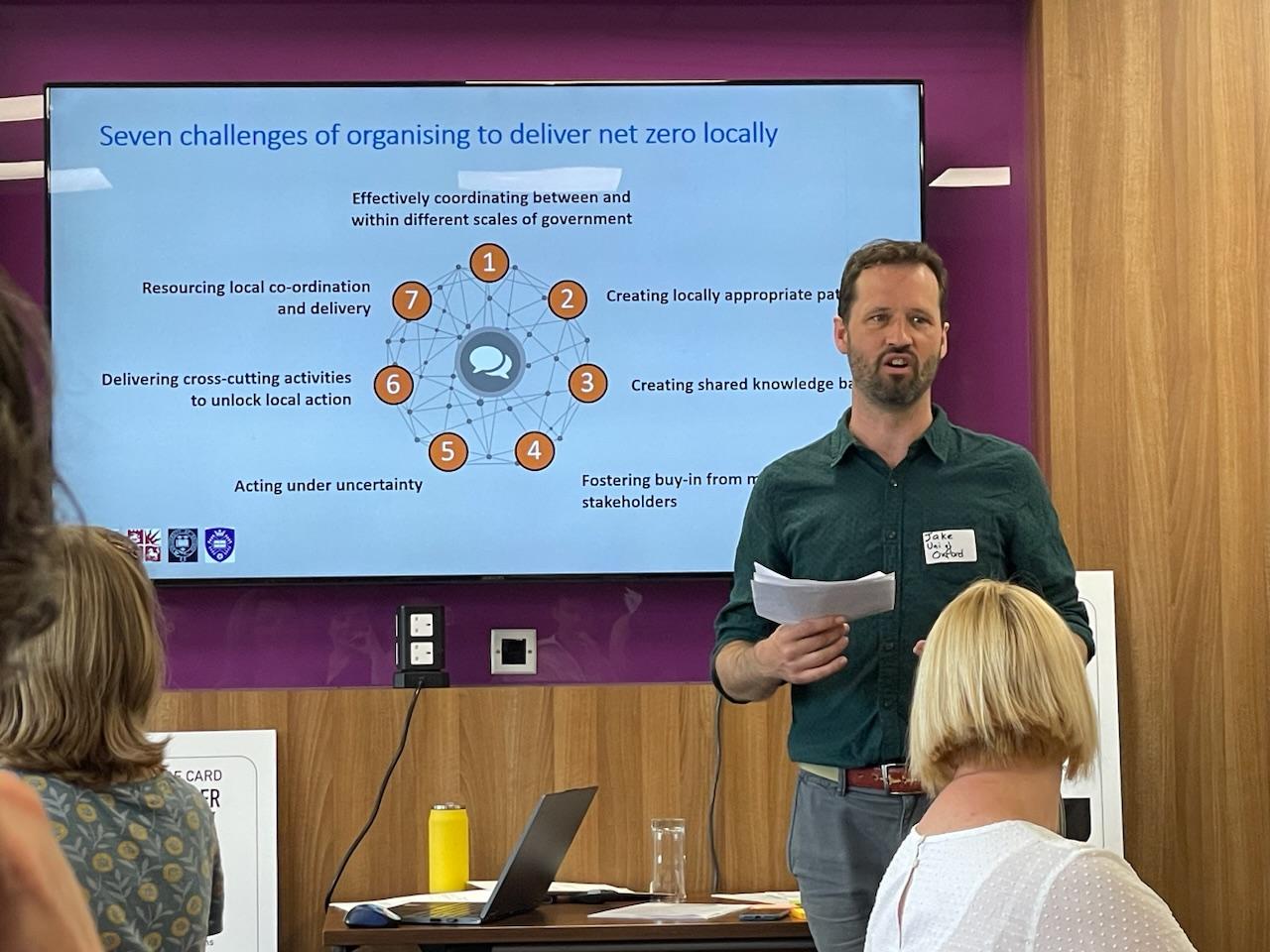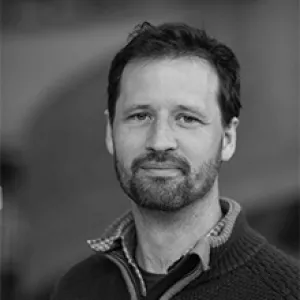A researcher at the Environmental Change Institute is one of two scientists to be awarded a new Innovation Fellowship by the British Academy.
Funded by the Department for Science, Innovation and Technology, the aim of the Fellowships is to support local and national policymakers in tackling policy issues such as levelling up challenges, driving sustainable and inclusive economic growth, and reducing regional disparities in the UK.
Dr Jake Barnes says he will be using his fellowship to focus on tensions manifesting in the creation of inclusive, sustainable economies that recognise and respond to local issues and meet the national policy challenge of reaching net zero by 2050. He said:
Net zero is widely agreed to be the defining societal challenge of the 21st century. The UK Government was one of the first countries in the world to set legally binding targets. At the same time three quarters of all local Authorities have declared climate emergencies and set ambitious local targets. Yet there remains a disconnect between national and local policy making and between national and local delivery.”

Focus of the fellowship
The fellowship will explore how the UK can develop effective multi-level governance structures capable of responding to local, regional and national needs and the major policy challenges ahead. The Fellowship has a particular focus on understanding how new or modified multi-level governance structures might encourage participation, engagement and cooperation.
Over the course of a year Dr Barnes will work closely with four Local Policy Innovation Partnerships (LPIPs) spread across Northern Ireland, Scotland, Wales and Yorkshire and a coordination hub, hosted at the University of Birmingham.
Each of the four partnerships is being funded by UK Research and Innovation (UKRI) as part of the Creating Opportunities, Improving Outcomes theme, which brings together devolved governments, local authorities, local businesses and local communities to harness the power of research and innovation in addressing local challenges. Whilst each partnership has a different focus, each adopts the use of multi-actor partnerships as a common approach to address local and national needs.
Dr Barnes added: “Through this fellowship I will critically examine the rise of multi-actor partnerships as necessary place-based responses to local and national challenges. I will explore how they help create, or hold back, the creation of more effective multilevel governance in the UK. Focussing on the underlying conditions, architectures, and mechanisms of multi-actor partnerships I will aim to generate practical insights about how participation can be encouraged, and how capability and capacity can be fostered where the partnerships are located.”
In awarding the fellowship, Christina Boswell, Vice-President of Public Policy at the British Academy, said:
The British Academy is absolutely delighted to be supporting UK early- and mid-career researchers in addressing the key policy challenges that face our nation today. From tackling regional inequalities to maintaining a sustainable economy that benefits everyone, today’s policy challenges demand innovative solutions requiring insights from across the SHAPE disciplines.”
The fellowship will run between October 2024 and September 2025.

